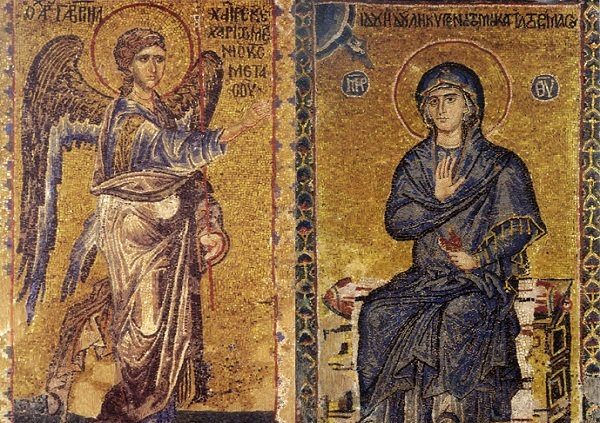The Feast of the Annunciation lends a pre-Paschal feeling to Great Lent, during which it always falls. The atmosphere of compunction recedes and gives way to the joy of the great feast. This is why we have a dispensation to eat fish. The hymns, the celebrations and all the other things associated with a Feast of the Mother of God dispel the spirit of mourning of Lent and offer us the opportunity to enjoy the Annunciation (which means ‘announcement’ or ‘message’), the news of the forthcoming advent and birth of Him Who would release humankind from the bonds of death, of corruption and of sin.
But whatever any feast means for the Church or a nation, unless it’s also important on a personal level it ceases to have any direct value of any importance. In the same way as people who enjoy their freedom and human rights can’t understand the feelings of those in prison, so it’s prisoners who really know what freedom means and can take great delight in regaining it.
Rather like this, only more so, should we understand the ‘mystery hidden from the ages’ which is revealed in the Annunciation of the Mother of God. While we were in the chaos into which our fall had cast us, the Redeemer came and brought us up into His Light. We were living in the bonds of time and place, and He came, crushed them and freed us.
All the above might sound wonderful, but not issues which touch directly upon our everyday lives. But the same can’t be said by people who’ve experienced their own Hell, their enslavement to their passions. People who, in the course of their life have experienced despair because of their sins and the pain of loneliness in all its fullness. These people know what chaos means and what death signifies. For them, the good tidings, their Annunciation, is the moment when, in some way, they’ve experienced the love of God in their heart, which has set them free and resurrected them.
For some Christians, then, the Annunciation’s a feast which breaks the routine and the mourning atmosphere of Lent, but for others it’s a source of great joy, because it’s a message of their own, personal redemption. The Ecclesiastical event becomes personal and joy increases.
Nobody can enjoy Paradise in their heart as much as those who’ve lived through Hell. No-one can thank God more warmly than those who’ve understood their weakness and have abandoned themselves to the arms of God and been redeemed. By the same token, nobody can enjoy the Feast of the Annunciation as much as those who’ve felt in their heart the Holy Spirit, ‘cleansing them from all stain’ and have experienced Christ ‘dwelling and abiding in their heart’.

















